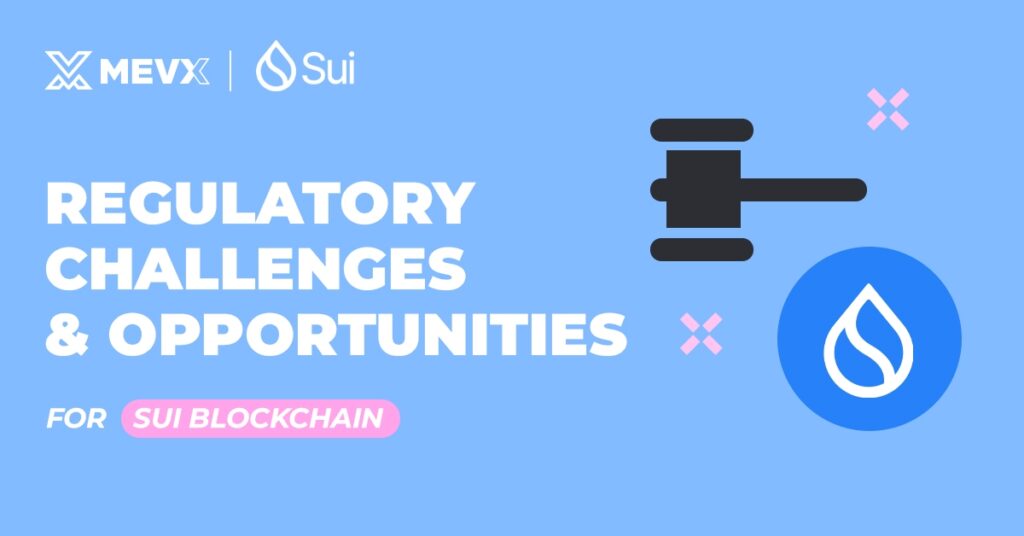Sui blockchain, a Layer-1 proof-of-stake blockchain built by Mysten Labs, leverages the Move programming language for scalability and low-latency transactions, supporting applications from DeFi to gaming. As Sui blockchain grows, it faces regulatory challenges and opportunities that shape its adoption for developers, institutional investors, and small-scale users, including meme coin enthusiasts.

Regulatory Challenges of Sui Blockchain
Sui blockchain navigates a complex global regulatory landscape with several hurdles:
- Token Classification Ambiguity: The SUI token’s roles in gas fees, staking, and governance raise questions about its status as a security, commodity, or utility token. In the U.S., SEC scrutiny could impose strict securities laws, limiting trading for retail investors. Other regions, like the EU under MiCA, add further complexity.
- KYC/AML Compliance: Regulators may require Know Your Customer (KYC) and Anti-Money Laundering (AML) measures for validators or dApps, increasing costs and reducing accessibility for small-scale users who value pseudonymity, such as meme coin holders.
- Cross-Border Restrictions: Varying regulations, from crypto bans in some countries to heavy oversight elsewhere, could restrict Sui’s global adoption, particularly for retail investors in restrictive markets like Asia or the Middle East.
- Decentralization Concerns: Posts on X have questioned Sui’s decentralization due to the Sui Foundation’s ability to pause contracts, as seen in the Cetus hack. Regulators may scrutinize this, potentially classifying Sui as a controlled entity.
- Taxation Complexity: Staking rewards and transactions on Sui may trigger taxable events, but unclear tax guidelines for PoS blockchains complicate compliance for small-scale investors.

Opportunities for Growth of Sui Blockchain
Sui blockchain’s innovative design offers pathways to thrive within regulatory frameworks:
- Institutional Adoption via ETFs: Recent SUI-based ETF filings by 21Shares and Canary Capital in the U.S. could legitimize Sui in traditional finance, attracting institutional and retail investors, including those diversifying from meme coins.
- Regulated Use Cases: Sui’s scalable infrastructure supports tokenized real-world assets (RWAs) and ESG applications, like carbon credit tracking with Fils, aligning with global regulations.
- Compliance Tools: The Move language enables secure, compliant dApps. Integrating analytics like Chainalysis can ensure KYC/AML adherence, fostering trust.
- Community Education: Initiatives like Sui Basecamp 2025 educate users and developers on compliance, empowering small-scale investors to participate confidently.
- Cross-Chain Potential: Partnerships with Axelar and Wormhole enable Sui to support regulated cross-chain applications, enhancing its appeal for global financial use cases.
Conclusion
Sui blockchain faces regulatory challenges like token classification, KYC/AML requirements, and cross-border variations, which may limit retail access. However, ETF filings, scalable infrastructure, and compliance tools position the Sui blockchain to succeed in a regulated Web3 ecosystem, benefiting developers and investors alike.
Explore more about Sui with other articles on our blog, and discover potential Sui meme coins on MevX, an all-in-one meme trading platform today!
Share on Social Media:
